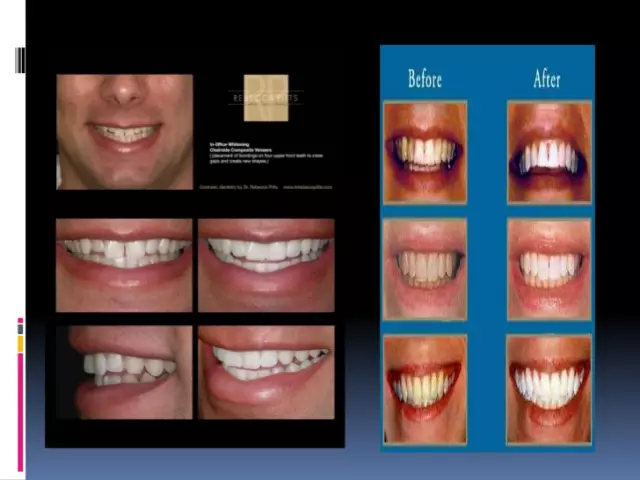- Author Rachel Wainwright wainwright@abchealthonline.com.
- Public 2023-12-15 07:39.
- Last modified 2025-11-02 20:14.
Ceforal
Instructions for use:
- 1. Pharmacological action
- 2. Release form
- 3. Analogs
- 4. Indications for use
- 5. Contraindications
- 6. Method of administration and dosage
- 7. Drug interactions
- 8. Side effects
- 9. Storage conditions

Ceforal Solutab is an antibiotic (cephalosporin of the third generation), which is used to treat ENT diseases, respiratory tract diseases and uncomplicated urinary tract infections in men and women.
pharmachologic effect
As a semisynthetic antibiotic (a group of III generation cephalosporins), Ceforal is used as an oral medication with a wide range of bactericidal action, which is active against infections caused by:
- Moraxella catarrhalis;
- Streptococcus pneumoniae;
- Haemophilus influenza;
- Streptococcus pyogenes;
- Proteus mirabilis;
- Escherichia coli;
- Neisseria gonorrhoeae.
Ceforal is not effective against Enterococcus spp., Pseudomonas spp., Listeria monocytogenes and most strains of Staphylococcus spp., Enterobacter spp., Clostridium spp., Bacteroides fragilis.
Release form
Ceforal is produced in the form of pale orange dispersible tablets containing the active ingredient (cefixime trihydrate) in an amount of 400 mg, in blisters of 1, 5 and 7 pieces.
Analogs of Ceforal
Analogs of Ceforal in terms of the active ingredient are medicines: Ixim Lupine, Suprax, Pantsef and Suprax Solutab.
The analogs of Ceforal in terms of the mechanism of action include the following drugs: Azaran, Axone, Bestum, Claforan Bakperazon, Medaxon, Biotraxon, Dardum, Ificef, Kefotex, Lendacin, Orzid, Lifaxon, Liforan, Tarcefoksim, Oframax, Torocef, Movcefoxyp, Ophritin, Sulperazon, Fortum, Cebanex and Cefantral.
Indications for the use of Ceforal
According to the instructions, Ceforal is prescribed for the treatment of various infectious and inflammatory diseases that cause microorganisms that are sensitive to the drug. So, the medicine is indicated for therapy:
- Sinusitis;
- Streptococcal tonsillitis and pharyngitis;
- Acute otitis media;
- Acute bronchitis and exacerbations of chronic bronchitis;
- Uncomplicated gonorrhea;
- Uncomplicated urinary tract infections;
- Shigellosis.
Contraindications Ceforal
According to the instructions, a contraindication to the use of Ceforal is hypersensitivity to cephalosporins, cefixime and penicillins.

Children are not prescribed medication against the background of chronic renal failure.
The use of Ceforal requires special care:
- During pregnancy;
- With colitis (history);
- To old people.
While taking Ceforal, breastfeeding should be interrupted.
Dosing and Administration of Ceforal
The effectiveness of Ceforal does not depend on food intake. The tablets can be swallowed whole or diluted in water until a suspension is obtained.
The daily dosage for adults and children weighing 50 kg or more is one tablet, which can be taken in one or two doses. For children 25-50 kg, half the adult dosage is usually prescribed.
The duration of therapy with Ceforal, according to the instructions, depends on the type of infection and the nature of the disease:
- In the treatment of tonsillopharyngitis, which causes Streptococcus pyogenes - from 10 days;
- In the treatment of infections of the ENT organs and respiratory tract - 1-2 weeks;
- In the treatment of uncomplicated urinary tract infections (upper and lower sections) in men - 7-14 days, in women - 3-14 days.
An overdose of Ceforal increases the frequency of dose-dependent side effects.
Drug interactions
The risk of overdose symptoms increases with the combined use of Ceforal with tubular secretion blockers, including probenecid.
Also, during the therapy carried out by Ceforal, it must be borne in mind that the drug can enhance the effect of indirect anticoagulants.
Side effects
Most often, when using Ceforal, according to reviews, disorders of the digestive system occur in the form of abdominal pain, nausea, indigestion, vomiting and diarrhea.
Long-term use of Ceforal can lead to disruption of the normal intestinal microflora. As a rule, with the manifestation of antibiotic-associated diarrhea in a mild form, it is enough to stop taking the medication to stop it. You should not use antidiarrheal drugs against the background of the development of pseudomembranous colitis during the treatment.
Somewhat less often during therapy with Ceforal, according to reviews, the following can be observed:
- Headaches, dysphoria and dizziness (central nervous system);
- Hematuria and a slight increase in the concentration of creatinine in the blood (urinary system);
- Agranulocytosis, transient leukopenia, pancytopenia, blood clotting disorders, eosinophilia (hematopoietic system).
According to reviews, the most likely allergic reactions that develop during therapy with Ceforal are:
- Hives;
- Drug fever;
- Itchy skin;
- Hemolytic anemia and interstitial nephritis.
With the development of these allergic reactions, as well as if Lyell's syndrome develops during therapy, the medication must be canceled. In addition, before starting treatment, it is necessary to check the anamnesis to exclude cross-allergic reactions with penicillins.
Storage conditions
Ceforal belongs to the group of prescription semi-synthetic antibiotics with a shelf life under standard storage conditions - 36 months (at temperatures up to 25 ° C).
Information about the drug is generalized, provided for informational purposes only and does not replace the official instructions. Self-medication is hazardous to health!






